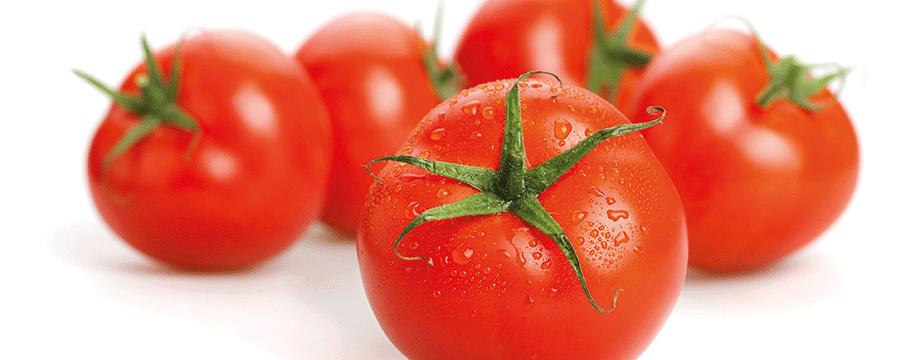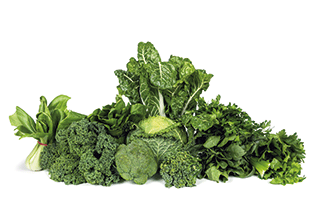Anti-heroes – your guide to antioxidants

Antioxidants are the heroes of the nutritional world, but just how do they work? Rude Health is on a mission to find out
“Antioxidants are substances which protect us from damage within our bodies on a cellular level,” according to Martha Brennan of Harvest Fare, Blessington, Co Wicklow. “On a molecular level they donate an electron to atoms known as free radicals. These atoms are missing an electron, making them a threat to healthy cells. Our bodies do produce antioxidants but there are antioxidants which we must get from outside. Our need for antioxidants varies depending on our ‘stresses’, such as environmental toxins or illness and disease.”
“Free radicals can be the result of normal bodily processes or external factors such as exposure to ultraviolet light, pollution and smoking,” says Gerald Colfer of Only Natural in Wexford town.“Left unchecked they are believed to lead to health issues associated with inflammation.”
“Modern life throws a phenomenal number of chemicals and toxins at us – in the air we breathe, the water we drink and the food we eat,” says Jacqueline Newson, a nutritional therapist for Altrient C.” These chemicals can trigger the activity of free radicals within body cells and tissues which can damage DNA and disrupt the way the cells function, triggering illness and disease.”
The role of antioxidants
“One way to help your body process and disarm harmful free radicals is to make sure you have a plentiful supply of antioxidants, healing nutrients that are naturally found in colourful fruits and vegetables,” says Jacqueline Newson. “Antioxidants help us fight both degenerative and infectious disease through cellular protection and repair,” says Martha Brennan. “They counteract signs of ageing that are the result of degeneration and they strengthen our immune system which is also vulnerable to free radical damage.”

Stocking up on antioxidants
“While there are antioxidant formulas available for the average person I prefer to recommend loading up on high antioxidant foods,” says Martha Brennan. “Fruits, particularly berries and vegetables are generally good sources. In addition, foodstuffs such as cacao, green tea and turmeric are good as are black rice and kidney beans. For a bigger punch cherry juice concentrate, matcha tea and olive leaf extract have high levels of antioxidants and supplemental forms such as astaxanthin and resveratrol are very useful. Ask in your local IAHS health store which antioxidants would best suit you if you have a condition that needs extra help.”
“The easiest way to maintain antioxidants in the body is to take a supplement such as astaxanthin or spirulina, but diet is of primary importance,” says Gerald Colfer. “Natural unrefined wholefoods such as whole grains, nuts and seeds, green leafy vegetables, fresh fish, fruits and berries all provide us with these vital nutrients.”
“Different types and ‘families’ of antioxidants help different areas of the body,” says Jacqueline Newson. “Beta-carotene found in orange and yellow natural foods help to protect and promote eye health. Lycopene found in red and orange foods, like tomatoes, helps to protect the prostate gland. Pink astaxanthins found in salmon, krill and prawns helps to protect the nervous system and a group of antioxidants called the lignans can help support hormone health. Fruit and vegetables are literally bursting with antioxidants so it’s worth making sure you get at least 5-10 portions a day. If loading up on fruit and veg is not an option, invest in a good antioxidant formula to keep premature ageing at bay.
“Many of the antioxidants help to protect the skin from the harmful effects of UV, boost the immune system, look after the heart and keep us looking youthful by plumping up collagen,” says Jacqueline Newson. “The real star of the antioxidant family is vitamin C which cannot be stored in the body so needs to be consumed daily. Topping up on citrus fruits, green leafy vegetables and parsley helps to keep vitamin C levels healthy and your body happy.”
Antioxidant tips
- The more variety, the better – eat 5-10 portions of brightly-coloured vegetables and fruits every day, particularly berries as well as nuts and seeds.
- Spice it up – herbs and spices such as turmeric, garlic and cinnamon are loaded with antioxidants so use them in your cooking when you can.
- Load up – make half of your dinner plate vegetables and find ways to add them to meals such as soups and stews.
- Get juicing – throw in fruit and vegetables for a great way to start your day with antioxidants.
- Fry light – keeping frying to a minimum as it can destroy the antioxidants in food. Go for steaming, light stir frying or poaching instead.
- Combine vitamins E and C together – to help reduce the negative effects of sun exposure on skin.
- Try co-enzyme Q10, zinc and selenium – all of these help to reduce oxidative damage in the body.
- For heart health – stock up on flavonoids from parsley, onions, berries, black tea, green tea and oolong tea, bananas and citrus fruits.
- For urinary health – get enough proanthocyanidins from grapes, apples, unsweetened baking chocolate, red wine, berries, hazelnuts, pecans and pistachios.
More Rude Health articles...
Articles from our latest issue...